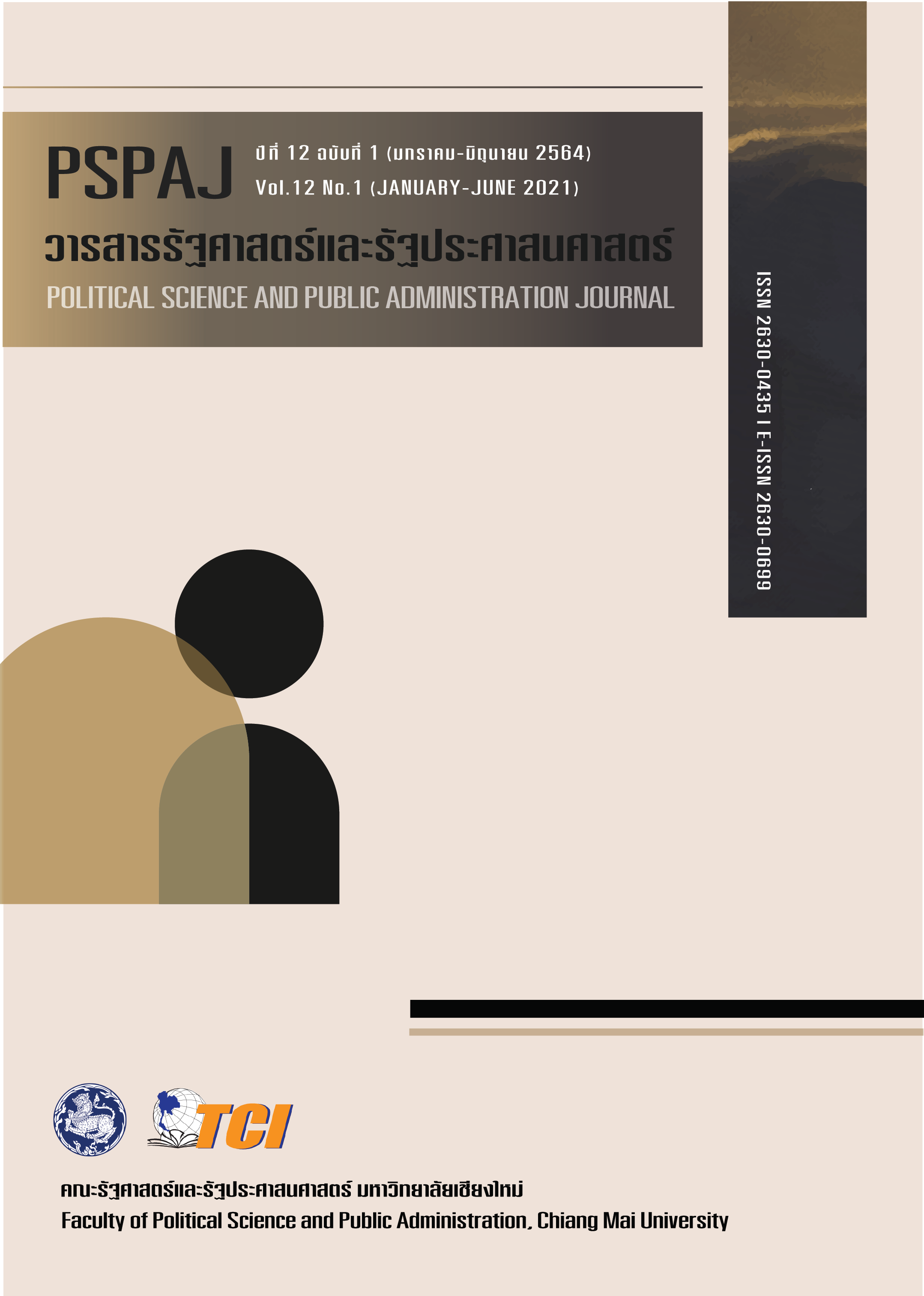ซ้ายกับสัตว์: มาร์กซ์กับปัญหาการกดขี่ขูดรีดสัตว์ในระบบทุนนิยม
Main Article Content
บทคัดย่อ
นักคิดและนักเคลื่อนไหวทางสังคมฝ่ายซ้ายมักจะละเลยประเด็นปัญหาเรื่องสัตว์ แม้ว่าสัตว์จะถูกกดขี่ขูดรีดในระบบทุนนิยมอย่างโหดร้าย ทารุณ และโจ่งครึ่ม แต่ฝ่ายซ้ายกลับมีมุมมองที่แทบไม่ต่างไปจากฝ่ายขวาเมื่อใดก็ตามที่มีการพิจารณาปัญหาเรื่องสัตว์ นั่นก็คือ
การถืออคติที่ว่า สัตว์คือสิ่งมีชีวิตที่ต่ำกว่ามนุษย์ สัตว์มีไว้เพื่อให้มนุษย์ได้ใช้ประโยชน์ และปัญหาเรื่องสัตว์ไม่ใช่ปัญหาสำคัญที่มนุษย์จะต้องให้ความสนใจ ในฐานะหนึ่งในนักคิดคนสำคัญที่สุดของฝ่ายซ้าย คาร์ล มาร์กซ์ มักจะได้รับการอ้างถึงอยู่เสมอในฐานะนักคิดที่สร้างความชอบธรรมให้กับอคติที่ว่าในหมู่ฝ่ายซ้าย กล่าวคือ ในเมื่อตัวมาร์กซ์เองก็ยกให้มนุษย์เป็นสิ่งมีชีวิตที่สูงส่งกว่าสัตว์และยังไม่เล็งเห็นด้วยซ้ำไปว่า การกดขี่ขูดรีดสัตว์คือประเด็นปัญหาที่สำคัญในระบบทุนนิยม ฝ่ายซ้ายก็ไม่มีความจำเป็นแต่อย่างใดที่ต้องให้ความสนใจกับสัตว์ในขบวนการเคลื่อนไหวเพื่อต่อสู้กับระบบทุนนิยม บทความชิ้นนี้ทำการท้าทายความเชื่อที่ว่านี้และนำเสนอว่า แม้ประเด็นปัญหาเรื่องสัตว์จะไม่ใช่ประเด็นหลักในงานเขียนของเขา มาร์กซ์ไม่ได้มีอคติต่อสัตว์หรือยกให้มนุษย์สูงส่งกว่าสัตว์แต่อย่างใด แทนที่จะละเลย มาร์กซ์กลับให้ความสนใจและเป็นกังวลกับปัญหาการกดขี่ขูดรีดสัตว์ในระบบทุนนิยม ด้วยเหตุนี้ หากฝ่ายซ้ายยังยึดเอางานเขียนของมาร์กซ์เป็นแรงบันดาลใจ พวกเขาควรจะหันมาทบทวนจุดยืนของตนเอง ล้มล้างอคติเดิมๆ ที่มีต่อสัตว์ และนับรวมเอาประเด็นปัญหาเรื่องการกดขี่ขูดรีดสัตว์เข้าไปเป็นส่วนหนึ่งในขบวนการเคลื่อนไหวเพื่อต่อสู้กับระบบทุนนิยม
Downloads
Article Details
- เนื้อหาและข้อมูลที่ลงตีพิมพ์ในวารสารรัฐศาสตร์และรัฐประศาสนศาสตร์ถือเป็นข้อคิดเห็นและความรับผิดชอบของผู้เขียนบทความโดยตรง ซึ่งกองบรรณาธิการวารสารรัฐศาสตร์และรัฐประศาสนศาสตร์ ไม่จำเป็นต้องเห็นด้วย หรือร่วมรับผิดชอบใดๆ
- บทความและข้อมูล ที่ได้รับการตีพิมพ์ในวารสารรัฐศาสตร์และรัฐประศาสนศาสตร์ ถือเป็นลิขสิทธิ์ของวารสาร หากบุคคลหรือหน่วยงานใดต้องการนำข้อมูลไปใช้ประโยชน์ในทางวิชาการ ขอให้อ้างอิงแหล่งที่มาด้วย
เอกสารอ้างอิง
Adams, C. (2015). The Sexual Politics of Meat: A Feminist-vegetarian Critical Theory. New York: Bloomsbury Publishing.
Adams, C., & Donovan, J. (1999). Introduction. In Adams, C., & Donovan, J. (Eds.). Animals and Women: Feminist Theoretical Explorations (pp. 1-8). Durham: Duke University Press.
Alvarado, P. (2016). 9 Everyday Products You Didn't Know Had Animal Ingredients. Retrieved September 10, 2019, from https://www.treehugger.com/green-food/9-everyday-products-you-didnt-know-had-animal-ingredients.html
Aquinas, T. (1929). Summa Theologica. (Fathers of the English Dominican, Trans.). London: Burns Oates & Washbourne Ltd.
Aristotle. (2009). Politics. (Barker, E., Trans.). Oxford: Oxford University Press.
Augustine. (1966). The Catholic and Manichaean Ways of Life. (Gallagher, D. A., & Gallagher, I. J., Trans.). Boston: The Catholic University Press.
Bellamy, J., & Clark, B. (2018). Marx and Alienated Speciesism. Monthly Review, (70)7. Retrieved September 10, 2019, from https://monthlyreview.org/2018/12/01/marx-and-alienated-speciesism/
Benton, T. (1993). Natural Relations: Ecology, Animal Rights & Social Justice. London: Verso.
______. (2011). Humanism = Speciesism? Marx on Humans and Animals. In Sanbonmatsu, J. (Ed.). Critical Theory and Animal Liberation (pp. 99-119). Lantham: Rowman & Littlefield.
Bogss, C. (2011). Corporate Power, Ecological Crisis, and Animal Rights. In Sanbonmatsu, J. (Ed.). Critical Theory and Animal Liberation (pp. 71-96). Lantham: Rowman & Littlefield.
Capps, A. (2013). Catching Up With Science: Burying the ‘Humans Need Meat’ Argument. Retrieved September 10, 2019, from freefromharm.org/health-nutrition/catching-up-with-science-burying-the-humans-need-meat-argument/
Charlton, A., Coce, S., & Francione, G. (1993). The American Left Should Support an Animal Right: A Manifesto. The Animals’ Agenda, 13(1), 28–34.
Cochrane, A. (2010). An Introduction to Animals and Political Theory. New York: Palgrave Macmillan.
Descartes, R. (1998). Discourse on Method. (Cress, D. A., Trans.). Indianapolis: Hackett Publishing Company.
Forbes. (2019). Thailand’s 50 Richest. Retrieved September 10, 2019, from https://www.forbes.com/thailand-billionaires/list/
Grant, J., & Jungkunz, V. (Eds.). (2011). Political Theory and the Animal/Human Relationship. Albany: State University of New York Press.
Gruen, L. (2011). Ethics and Animals: An Introduction. Cambridge: Cambridge University Press.
Gunderson, R. (2011). Marx’s Comments on Animal Welfare. Rethinking Marxism, 23(4), 543-548.
Igor, I. (2018). Most Active Large Agribusiness Corporations in the AgTech Domain. Retrieved September 10, 2019, from https://medium.com/remote-sensing-in-agriculture/most-active-large-agribusiness-corporations-in-the-agtech-domain-dd0f16c1c684
Kant, I. (1963). Lectures on Ethics. (Infield, L., Trans.). New York: Harper & Row.
Kongkirati, P., & Kanchoochat, V. (2018). The Prayuth Regime: Embedded Military and Hierarchical Capitalism in Thailand. TRaNS: Trans-Regional and -National Studies of Southeast Asia, 6(2), 279-305.
Kru, E. (2018). 10 Everyday Items That Contain Animal Products. Retrieved September 10, 2019, from https://raisevegan.com/10-everyday-items-that-contain-animal-products/
Kymlicka, W., & Donaldson, S. (2014). Animal Rights, Multiculturalism, and the Left. Social Philosophy, 45(1), 116-135.
Llorente, R. (2011). Reflections on the Prospects for a Non-speciesist Marxism. In Sanbonmatsu, J. (Ed.). Critical Theory and Animal Liberation (pp. 121-135). Lantham: Rowman & Littlefield.
Macdonald, B. (2011). Marx and the Human/Animal Dialectic. In Grant, J., & Jungkunz, V. (Eds.). Political Theory and the Animal/human Relationship (pp. 23-48). Albany: State University of New York Press.
Marx, K. (1978a). Economic and Philosophical Manuscripts of 1844. In Tucker, R. (Ed.). The Marx-Engels Reader (pp. 66-125). New York: W. W. Norton & Company.
______. (1978b). On the Jewish Question. In Tucker, R. (Ed.). The Marx-Engels Reader (pp. 26-52). New York: W. W. Norton & Company.
______. (1990). Capital Volume I. (Fowkes, B., Trans.). London: Penguin Books.
______. (1993). Capital Volume II. (Fernbach, D., Trans.). London: Penguin Books.
Marx, K., & Engels, F. (1978a). Manifesto of the Communist Party. In Tucker, R. (Ed.). The Marx-Engels Reader (pp. 469-500). New York: W. W. Norton & Company.
______. (1978b). The German Ideology Part I. In Tucker, R. (Ed.). The Marx-Engels Reader (pp. 146-200). New York: W. W. Norton & Company.
Nibert, D. (2013). Animal Oppression & Human Violence. New York: Columbia University Press.
Painter, C. (2016). Non-human Animals Within Contemporary Capitalism: A Marxist Account of Non-Human Animal Liberation. Capital & Class, 40(2), 325-343.
Perlo, K. (2002). Marxism and the Underdog. Society & Animals, 10(3), 303-318.
Petre, A. (2016). 6 Science-based Health Benefits of Eating Vegan. Healthline.com. Retrieved September 10, 2019, from www.healthline.com/nutrition/vegan-diet-benefits
Phongpaichit, P., & Baker, C. (2004). Thaksin: The Business of Politics in Thailand. Copenhagen: Nordic Institute of Asian Studies.
Rahim, L. (2018). Six Reasons to Go Vegan, According to Science. Retrieved September 10, 2019, from https://www.telegraph.co.uk/health-fitness/body/six-reasons-go-vegan-according-science/
Regan, T. (2004). The Case for Animal Rights. Berkley: University of California Press.
Sanbonmatu, J. (2011). Introduction. In Sanbonmatsu, J. (Ed.). Critical Theory and Animal Liberation (pp. 55-69). Lantham: Rowman & Littlefield.
Sharma, S. (2018). Mighty Giants: Leaders of the Global Meat Complex. The Institute for Agriculture and Trade Policy. Retrieved September 10, 2019, from https://www.iatp.org/blog/leaders-global-meat-complex
Singer, P. (2002). Animal Liberation. New York: HarperCollins.
Soronson, J. (2011). Constructing Extremists, Rejecting Compassion: Ideological Attacks on Animal Advocacy from Right and Left. In Sanbonmatsu, J. (Ed.). Critical Theory and Animal Liberation (pp. 219-237). Lantham: Rowman & Littlefield.
Stache, C. (2018). On the Origins of Animalist Marxism. Monthly Review, (70)1. Retrieved September 10, 2019, from https://monthlyreview.org/2018/12/01/on-the-origins-of-animalist-marxism/
Torres, B. (2007). Making a Killing: The Political Economy of Animal Rights. Oakland: AK Press.
Wilde, L. (2000). The Creatures, Too, Must Become Free? Marx and the Animal/Human Distinction. Capital & Class, 24(3), 37-53.


